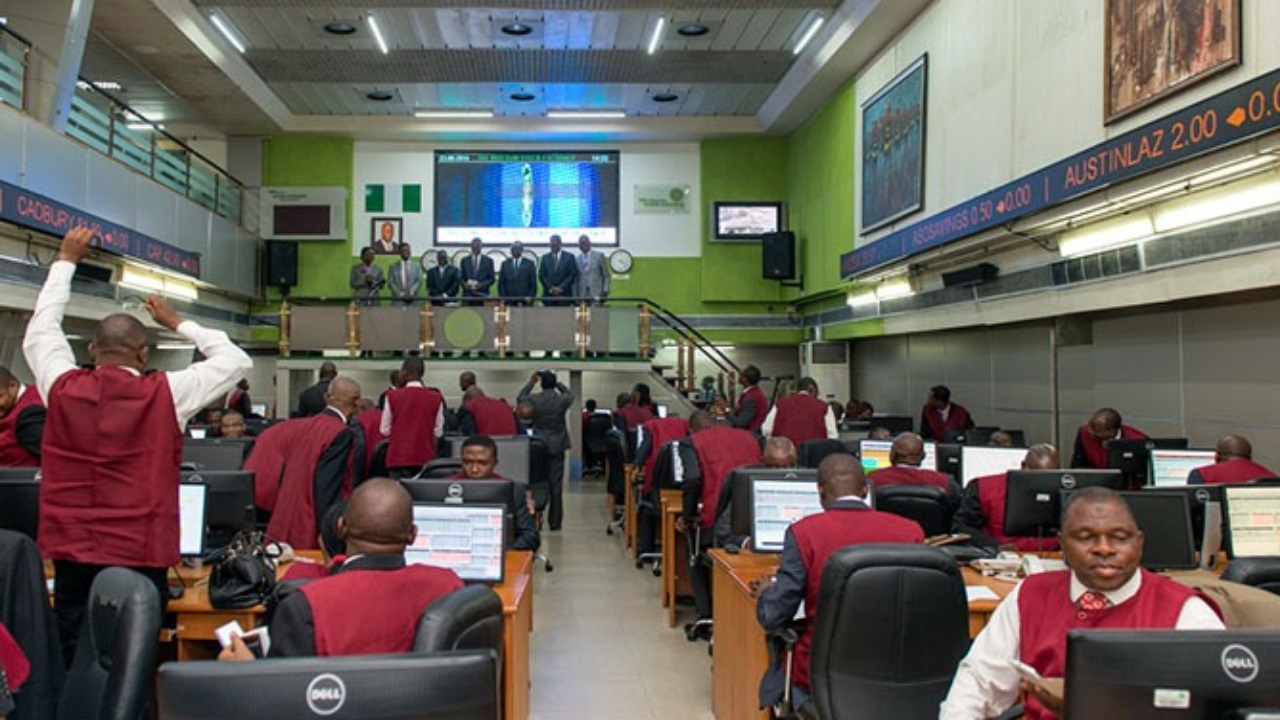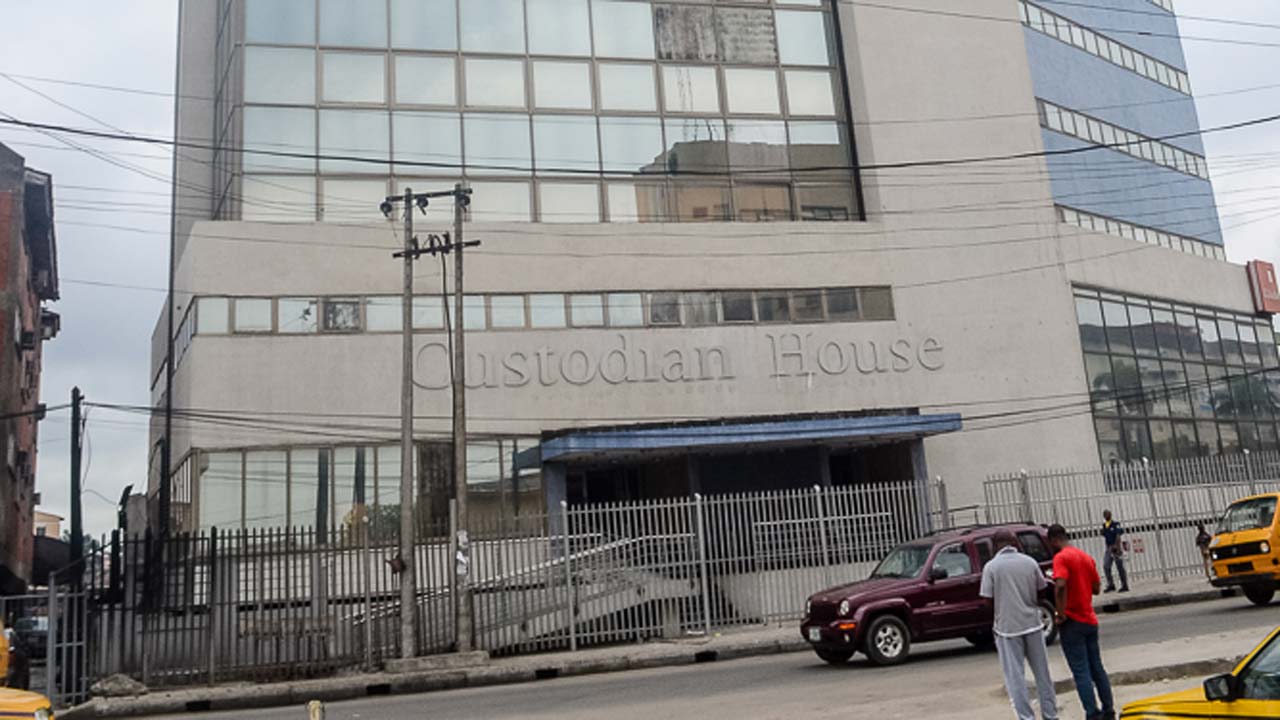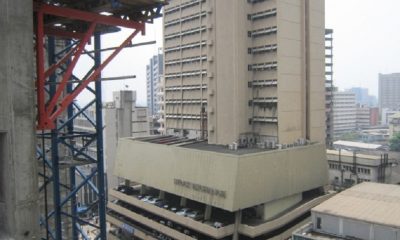Economy
Trade, Geopolitical Concerns May Lead to Pullback on Wall Street

By Investors Hub
The major U.S. index futures are pointing to a lower opening on Thursday following the rebound seen over the course of the previous session.
Lingering trade concerns may weigh on the markets following President Donald Trump?s recent comments downplaying expectations for a trade deal with China.
Potentially adding to the trade concerns, Commerce Secretary Wilbur Ross has initiated an investigation into whether imports of automobiles and parts threaten to impair U.S. national security.
?There is evidence suggesting that, for decades, imports from abroad have eroded our domestic auto industry,? Ross said in a statement.
He added, ?The Department of Commerce will conduct a thorough, fair, and transparent investigation into whether such imports are weakening our internal economy and may impair the national security.?
Continued uncertainty about the planned meeting between Trump and North Korean leader Kim Jong Un may also generate some selling pressure.
North Korean vice foreign minister Choe Son-hui raised the possibility of canceling the historic summit following what she called ?ignorant and stupid? comments by Vice President Mike Pence.
?Whether the U.S. will meet us at a meeting room or encounter us at nuclear-to-nuclear showdown is entirely dependent upon the decision and behavior of the United States,? Choe said, according to the state-run Korean Central News Agency.
She added, ?In case the U.S. offends against our goodwill and clings to unlawful and outrageous acts, I will put forward a suggestion to our supreme leadership for reconsidering the DPRK-U.S. summit.?
Stocks showed a notable turnaround over the course of the trading day on Wednesday after coming under pressure early in the session. The major averages climbed into positive territory following the release of the minutes of the latest Federal Reserve meeting.
The major averages ended the day just off their highs of the session. The Dow edged up 52.40 points or 0.2 percent to 24,886.81, the Nasdaq climbed 47.50 points or 0.6 percent to 7,425.96 and the S&P 500 rose 8.85 points or 0.3 percent to 2,733.29.
The upward move seen late in the session came as the minutes of the Fed’s monetary policy meeting earlier this month were seen as dovish.
The minutes showed some uncertainty about the outlook for inflation, with some questioning whether the rate of inflation will be sustained at the Fed’s 2 percent target.
Others noted a temporary period of inflation modestly above 2 percent would be consistent with the Fed’s symmetric inflation objective.
“While the economy is generally viewed as being strong by just about everyone, there remains uncertainty about inflation and therefore the path of interest rates,” said Joel L. Naroff, President and Chief Economist at Naroff Economic Advisors.
“The inflation hawks on the Fed seem to be outnumbered, at least right now, by the doves,” he added. “That does not mean there will not be a rate hike in June.”
The minutes said participants generally agreed with the assessment that continuing to raise interest rates gradually would likely be appropriate if the economy evolves about as expected.
“So, expect a hike in June,” Naroff said. “And if inflation continues to accelerate as the economy grows more strongly, additional increases this year are likely.”
On the U.S. economic front, the Commerce Department released a report showing a pullback in new home sales in the month of April.
The report said new home sales fell by 1.5 percent to an annual rate of 662,000 in April after jumping by 2 percent to a revised rate of 672,000 in March.
Economists had expected new home sales to drop to a rate of 679,000 from the 694,000 originally reported for the previous month.
The weakness seen earlier in the session partly reflected a negative reaction to earnings news from retail giant Target (TGT).
Shares of Target slumped by 5.7 percent after the company reported first quarter results that missed analyst estimates on both the top and bottom lines.
Gold stocks moved notably higher over the course of the session, driving the NYSE Arca Gold Bugs Index up by 1.5 percent. The index rebounded after ending the previous session at its lowest closing level in well over a month.
The strength among gold stocks came as the price of the precious metal turned positive in electronic trading.
Considerable strength also emerged among retail stocks, as reflected by the 1.2 percent gain posted by the Dow Jones Retail Index. With the gain, the index reached its best closing level in well over three months.
Tobacco, real estate, and utilities stocks also moved to the upside, while significant weakness remained visible among steel and telecom stocks.
Economy
Katsina Provides Additional N500m for Women-owned Businesses
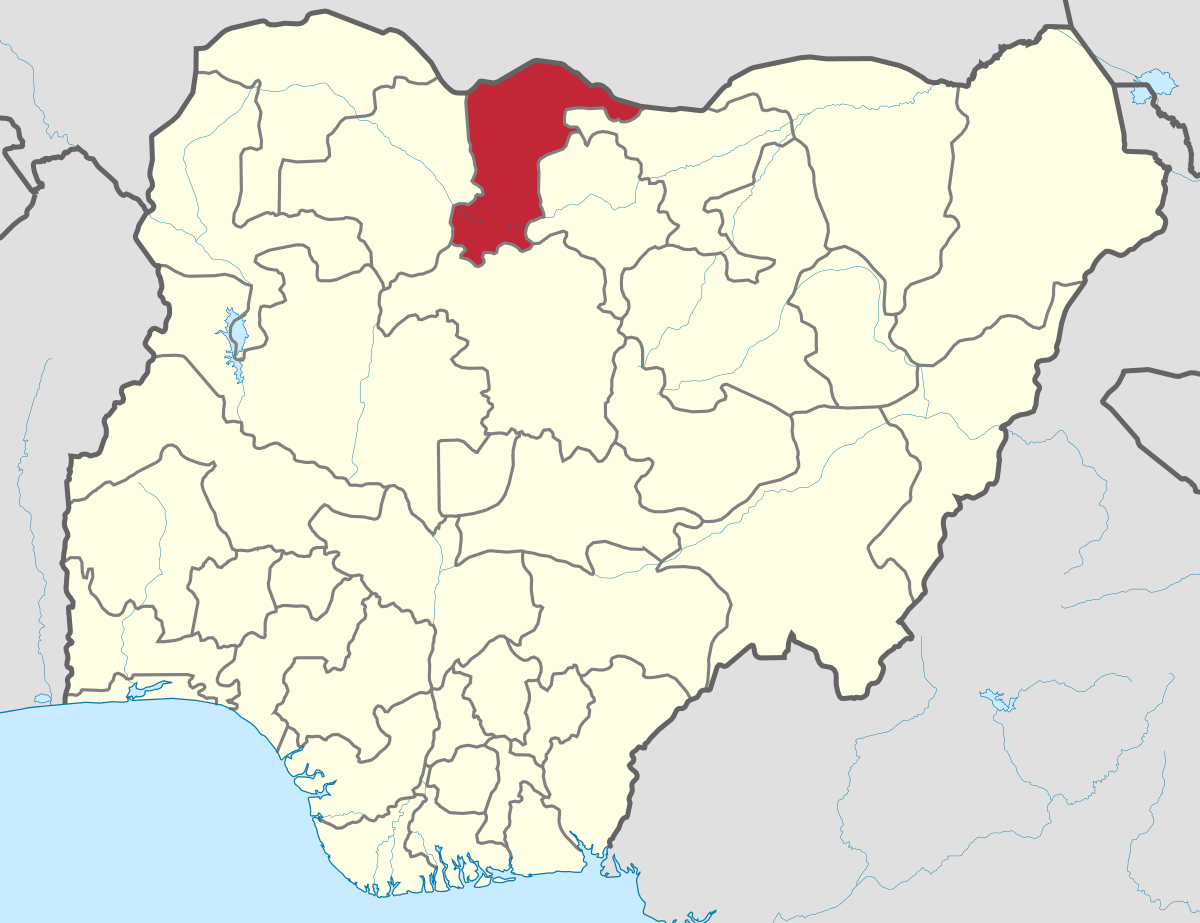
By Modupe Gbadeyanka
The Katsina State government has offered additional N500 million to support women-owned businesses in the state as part of efforts to boost economic activities.
Governor Dikko Umaru Radda announced this at the Women of Influence and Investment Summit hosted by the Katsina Inner Wheel Development Initiative (KIWDI), in partnership with Access Bank Plc.
The event brought together women entrepreneurs, investors, policymakers, and development partners to advance women’s economic empowerment in the state.
The summit, themed Where Influence Meets Investment, focused on positioning women as key drivers of enterprise, leadership, and inclusive growth. It also highlighted the growing collaboration between Access Bank and the Katsina State Government on financial inclusion and SME development.
Mr Radda noted that investing in women was critical to building a productive and sustainable economy.
In her welcome address, the founder of KIWDI, Ms Amina Zayyana, said the summit was designed to connect women to opportunities, training, finance, and markets, stressing that when women-led businesses grow, families and communities benefit.
On her part, the Group Head of Women Banking at Access Bank, Mrs Nene Kunle-Ogunlusi, said the lender was proud to partner with Katsina State and KIWDI in advancing women’s economic participation.
“At Access Bank, we are committed to moving women from potential to prosperity. Through our Women Banking proposition and the ‘W’ Initiative, we provide access to finance, capacity building, and market linkages that help women start, stabilise, and scale their businesses,” she said.
She noted that the W Initiative, launched in 2014, is Access Bank’s flagship women- focused platform, designed to meet the real needs of women entrepreneurs and professionals across Nigeria and Africa.
“Our partnership with Katsina State goes beyond banking. It is about supporting economic empowerment, SME growth, and financial inclusion, especially for women,” she added.
Mrs Kunle-Ogunlusi noted that Access Bank was proud to participate not just as a financial institution, but as a long-term partner in women’s economic advancement across Nigeria and Africa.
“At Access Bank, we made a deliberate decision to change that, not with charity, but with strategy. Not with sympathy, but with solutions. The W Initiative, which was launched in 2014, is Access Bank’s flagship women-focused proposition, created to respond to the real needs of women,” she said.
The banker disclosed that through the W Initiative, the bank has disbursed over N314 billion in loans to women, supporting over 3.6 million female loan beneficiaries, and helping women-owned businesses start, stabilise, and scale up.
Economy
2026 Budget: Reps Threaten Zero Allocation for SON, NAICOM, CAC, Others
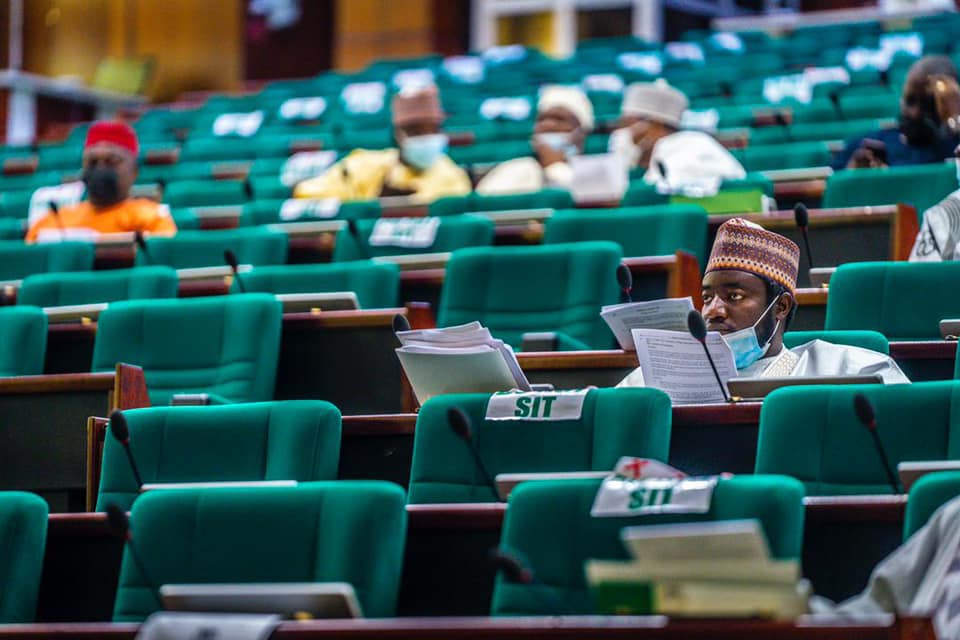
By Adedapo Adesanya
The House of Representatives Public Accounts Committee (PAC) has recommended zero allocation for the Standards Organisation of Nigeria (SON), the National Insurance Commission (NAICOM), and the Corporate Affairs Commission (CAC), among others, in the 2026 budget for allegedly failing to account for public funds appropriated to them.
The committee, at an investigative hearing, accused the affected ministries, departments and agencies (MDAs) of shunning invitations to respond to audit queries contained in the Auditor-General for the Federation’s annual reports for 2020, 2021 and 2022.
The affected MDAs include the Federal Housing Authority (FHA), the Federal Ministry of Housing and Urban Development, the Federal Ministry of Women Affairs and Social Development, the National Business and Technical Examinations Board (NABTEB), and the Nigerian Meteorological Agency (NiMet).
Others are Federal University of Gashua; Federal Polytechnic, Ede; Federal Polytechnic, Offa; Federal Medical Centre, Owerri; Federal Medical Centre, Makurdi; Federal Medical Centre, Bida; Federal Medical Centre, Birnin Kebbi; Federal Medical Centre, Katsina; Federal Government College, Kwali; Federal Government Boys’ College, Garki, Abuja; Federal Government College, Rubochi; Federal College of Land Resources Technology, Owerri; Council for the Regulation of Freight Forwarding in Nigeria; and the FCT Secondary Education Board.
The PAC chairman, Mr Bamidele Salam, while speaking on the decision of the committee to recommend a zero budget for the defaulting MDAs, stated that the National Assembly should not continue to appropriate public funds to institutions that disregard accountability mechanisms.
“Public funds are held in trust for the Nigerian people. Any agency that fails to account for previous allocations, refuses to submit audited accounts, or ignores legislative summons cannot, in good conscience, expect fresh budgetary provisions. Accountability is not optional; it is a constitutional obligation,” he said.
The panel maintained that its recommendation for a zero budget for the affected MDAs is aimed at restoring fiscal discipline and strengthening transparency across federal institutions and conforms with extant financial regulations and the oversight powers of the parliament.
Economy
SEC, NOA to Sensitize Nigerians to Illegal Investment Schemes
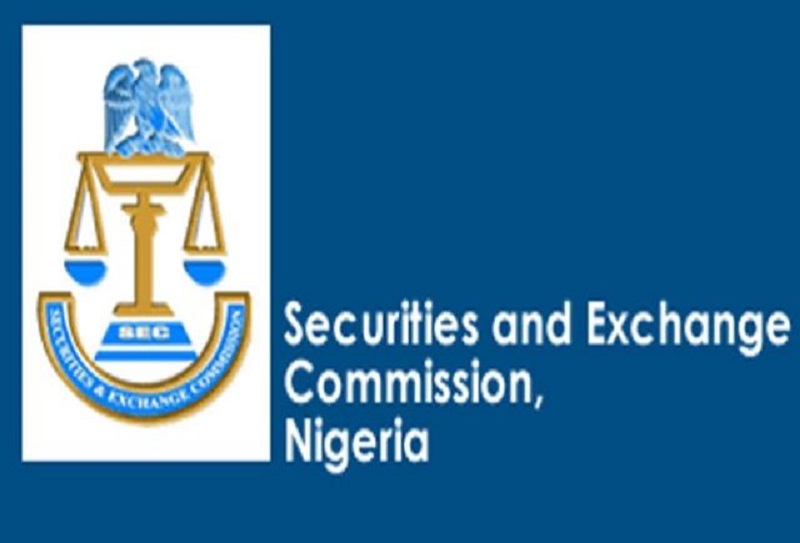
By Adedapo Adesanya
The Securities and Exchange Commission (SEC) and the National Orientation Agency (NOA) have partnered to enlighten Nigerians on illegal investment schemes in Nigeria.
The director-general of SEC, Mr Emomotimi Agama, stated this during a meeting with his NOA counterpart, Mr Lanre Issa-Onilu, in Abuja on Thursday, according to a statement from SEC.
Mr Agama said the capital market is an available tool for national development, but beyond all that, there is a tendency for people to do the wrong things that will lead to the impoverishment of Nigerians.
According to him, these are not supposed to be, but many people fall victim due to a lack of knowledge. He stated that these schemes are springing up daily, and those involved are defrauding Nigerians, as people are always gullible because of the need to survive.
“As a management, we decided to move out to enlighten people; we cannot assume that people know, we need to go out for mass communication, hence this collaboration. It is only by co-operation that we can achieve the purpose of our existence,” he stated.
The SEC DG solicited the co-operation of the NOA to reach Nigerians because of its capacity and vast network of mass media, in a bid to ensure that the message reaches every nook and cranny of the country.
“This collaboration is important because it will go a long way in ensuring that Nigerians are no longer victims of these fraudulent schemes. We appreciate that you value this country, and we value the work that you do,” he added.
On his part, Mr Issa-Onilu commended the SEC for the capital market’s achievements in recent times, adding that the commission has not been celebrated enough.
“We commend you and thank you on behalf of the country, but most Nigerians are not aware of the opportunities in the capital market. An ignorant society will fall victim to many things that are avoidable. It is our responsibility to enlighten people to make the right decisions.
“We request that you provide information on what you do to enable us to propagate them. Our primary assignment is to serve all government institutions as the communications arm. We do a lot of enlightenment in places like the religious houses, motor parks, town halls, among others.”
Mr Issa-Onilu said the NOA engages in civic education to create the right values that will help most Nigerians be better citizens, saying that “many Nigerians are deficient in good behaviour. Both the Ponzi scheme promoters and those who patronise them are suffering from the wrong attitude and values.
“We have to encourage people to have the right attitude so they do not fall victim to Ponzi schemes. We have created a lot of platforms to interact with Nigerians.”
-

 Feature/OPED6 years ago
Feature/OPED6 years agoDavos was Different this year
-
Travel/Tourism10 years ago
Lagos Seals Western Lodge Hotel In Ikorodu
-

 Showbiz3 years ago
Showbiz3 years agoEstranged Lover Releases Videos of Empress Njamah Bathing
-

 Banking8 years ago
Banking8 years agoSort Codes of GTBank Branches in Nigeria
-

 Economy3 years ago
Economy3 years agoSubsidy Removal: CNG at N130 Per Litre Cheaper Than Petrol—IPMAN
-

 Banking3 years ago
Banking3 years agoSort Codes of UBA Branches in Nigeria
-

 Banking3 years ago
Banking3 years agoFirst Bank Announces Planned Downtime
-

 Sports3 years ago
Sports3 years agoHighest Paid Nigerian Footballer – How Much Do Nigerian Footballers Earn


